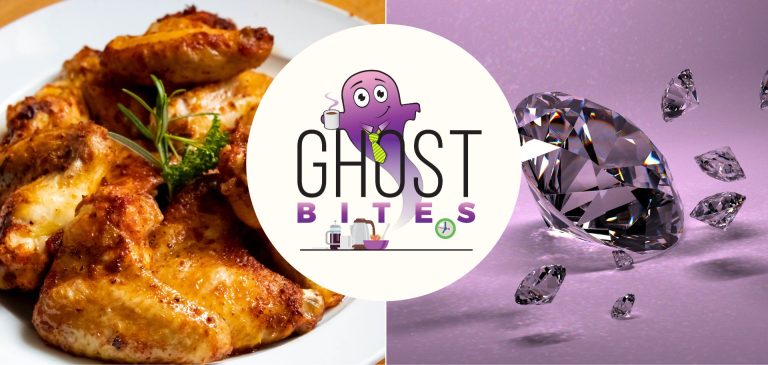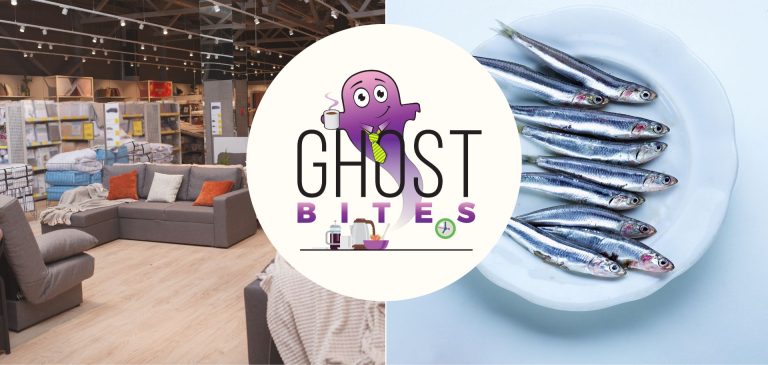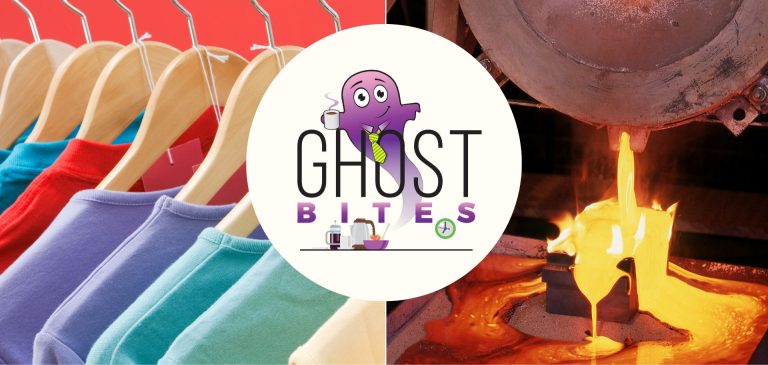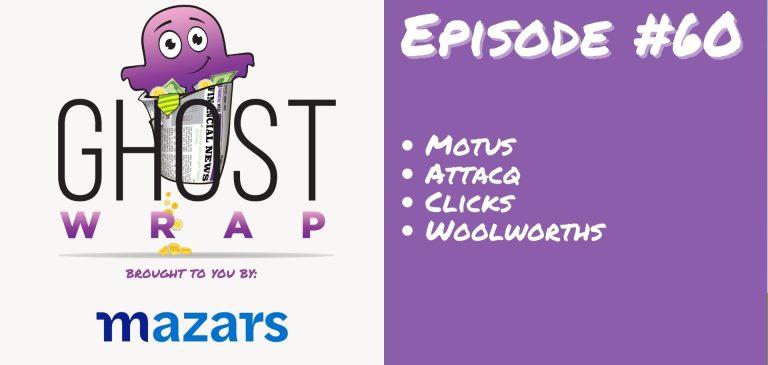Get the latest recap of JSE news in the Ghost Wrap podcast, brought to you by Mazars:
Anglo American flags better diamond conditions at De Beers (JSE: AGL)
Things got shiny in the US over the holiday season
2023 was the year in which lab-grown diamonds really became a talking point. This impacted the De Beers business (part of Anglo American), with a significant drop in rough diamond prices and worries around demand.
The first sales cycle of 2024 seems to be back on track, with sales of $370 million. Although that’s down on $454 million in the first cycle of 2023, it’s a significant improvement from sales of $137 million in the final cycle of 2023.
The company attributes this to consumer demand in the US over the holiday season, as well as the restart of rough diamond imports into India. The company still believes that it will take some time for rough diamond demand to fully recover.
Astral Foods swoops back into decent profitability (JSE: ARL)
The “big bird era” is behind us – no, really!
Astral Foods had a truly horrible time in the year ended September 2023. Basically everything that possibly could go wrong, did in fact go wrong. The previous period had everything from load shedding agony through to the horrors of bird flu. The company uses words like “devastating” and “decimating” and the colourful language is entirely warranted.
Thankfully, things have improved substantially. Load shedding has decreased, which means lower diesel expenses than anticipated. Due to a normalisation of broiler age and live weight, the feed conversion rate is better. The company literally describes this as being a better environment after the “big bird era” – when the slaughtering programme was so negatively impacted by load shedding etc. that birds were bigger than they should be and thus more expensive to feed.
The company avoided chicken shortages by importing broiler hatching eggs during bird flu. The International Trade Administration Commission recommended an import tariff rebate based on shortages, despite Astral noting that there weren’t any shortages!
Excitingly, the poultry division has posted a marginal level of profitability in the first quarter of 2024. Group HEPS is expected to be between 647 cents and 654 cents for the interim period, a wonderful improvement from HEPS of 163 cents in the comparable period. The balance sheet is also in good shape, with debt trending lower.
The dream is over at Ellies (JSE: ELI)
The company couldn’t get the funding for the Bundu Power deal
I’ve written a few times before that the proposed acquisition of solar business Bundu Power was at a lofty multiple. With Ellies needing to raise debt for the deal (and with the rest of the Ellies business on fire), it was always going to be a long shot. Sadly, the company’s dream hasn’t worked out and the outcome is particularly painful, with Ellies now entering voluntary business rescue.
The share price closed 60% lower at R0.02 per share. This is a perfect example of what happens when a company takes too long to move with the times. A sad day for a household name.
EOH: sideways and disappointing for investors (JSE: EOH)
I really struggle to see a reason to be bullish here
EOH’s rollercoaster ride has been well documented. At some point, the company became a little bit boring. It did a rights issue at R1.30 and then had to knuckle down and find ways to grow. A year later, the share price is at R1.32. You don’t need to get the calculator out to figure out that your money was better off elsewhere.
There’s absolutely nothing in the “operating context” section of the pre-close update that will inspire bullishness in shareholders. The whole thing is just a reminder of how much the local economy sucks. The knock-on effect is pressure on IT budgets, particularly in the public sector where EOH is still playing. Large corporate IT investments are being spread out or delayed entirely.
The first quarter of this financial year saw the worrying trend in revenue continue. Things got better in the second quarter, although we have no idea by how much. There are also some vague comments around the company hoping for “some” revenue growth relative to the second half of the previous year. This implies that they might be lower year-on-year i.e. vs. the first half of the previous year.
At least gross margin is stable, even if revenue is struggling. Things could be worse. They are also working hard to save on overheads. Naturally, the interest charge comes down substantially thanks to the R600 million equity capital raise and the decrease in debt.
There are still a couple of legacy issues that the company is dealing with, including a PAYE dispute with SARS in one of the subsidiaries.
EOH hopes to make a living from public sector and large corporate head office IT work. In a country with almost no economic growth, I’m afraid that there is nothing to get excited about in that business model.
Hyprop had a merry Christmas across most metrics (JSE: HYP)
But as we’ve seen elsewhere, Black Friday was less inspiring in 2023
Hyprop (owner of various important malls in South Africa and elsewhere) released an operational trading update dealing with the festive season. The company says that retailers and shoppers have become “savvier” about Black Friday deals, which is a nice way of saying that Black Friday sucked in 2023. Thankfully, people spent that money in December instead.
In the South African portfolio, tenant turnover was up only 3.2% year-on-year in November, whereas the December growth rate was 8.1%. Trading density grew 3.0% and 7.5% for the two months respectively. Foot count was surprisingly consistent, coming in at 4.0% and 4.1%. Going to the mall and whipping out the credit card clearly isn’t the same thing.
In Eastern Europe, the properties are on the right side of an economic growth story. Turnover grew 16.8% and 15.2% in November and December respectively – measured in euros! This is despite foot count being up 2.7% and down 2.6% for those months respectively.
Moving on to Ghana where Hyprop has three centres, much of the focus has been on replacing Game as a tenant. Turnover measured in US dollars increased by 7.7% in October and 4.7% in November. Your eyes aren’t deceiving you – no December numbers have been given as they aren’t ready yet. Financial reporting clearly moves a bit slower in Ghana!
Overall, that’s a decent set of numbers for the property fund.
Impala Platinum somehow grew production on a like-for-like basis (JSE: IMP)
This is despite the absolute tragedy in November that claimed 13 lives
Sadly, fatal accidents in the mining sector are still a reality. Usually, it’s a case of one or two incidents every few months, leading to the tragic loss of life of someone who simply arrived for work that day. That’s already unacceptable. What happened at Impala Platinum in November was so much worse, with 13 employees losing their lives and another 73 employees injured in a single accident.
Of course, a number of formal processes are underway in relation to that incident, including internal processes and investigations by the Department of Mineral Resources and Energy (DMRE). This is going to carry on for a while.
Repair work to the shaft at Impala Rustenburg has been making progress and the DMRE gave permission to use the rock winder on Tuesday 9 January. This allows a ramp-up in mined volumes to around 60% of production capacity in the coming weeks.
Despite all of this, the production loss associated with this catastrophe was only 30,000 ounces, with the loss of a further 30,000 ounces expected for the second half of the financial year. For the first half, Impala group managed to grow production by 18% to 1.9 million ounces. On a like-for-like basis, production increased by 2%. The difference between the two numbers is of course the acquisition of Royal Bafokeng, now called Impala Bafokeng.
Sales volumes were up 12% overall. They were down by 2% on a like-for-like basis. This isn’t helpful when PGM prices came off significantly for the period under review, with the group achieving revenue of R25,795 per 6E ounce sold. Irritatingly, they didn’t give the amount for the comparable period in the announcement, so I had to go dig it out. They achieved revenue per 6E ounce sold of R38,117 in the comparable period. I guess that’s why it was left out.
Group unit costs per 6E ounce are up 5% to R20,350. This doesn’t bode well for profitability, which is why HEPS is expected to be “at least” 20% lower than the comparable period. I suspect that it will be a lot lower than that. “At least 20%” is the minimum guidance required under JSE rules.
Little Bites:
- Director dealings:
- The Saltzman family has pulled off one of the biggest off-market trades you’ll ever see in this country, selling over R1.51 billion worth of shares in Dis-Chem (JSE: DCP) to Coronation. This takes Coronation’s stake to 29.83%, which is similar in size to what the Saltzmans still hold.
- A prescribed officer of Acsion Limited (JSE: ACS) has bought shares in the company worth R26.5k.
- The COO of Kibo Energy (JSE: KBO) has sold more shares, this time to the value of R486k.
- The independent non-executive chairperson of RFG Holdings (JSE: RFG) has acquired shares worth R31.4k.
- I have bad news for you if you are a Basil Read (JSE: BSR) shareholder. The company has been in business rescue since June 2018 and has been focused on completing construction contracts and pursuing contract claims. The business rescue practitioners believe that the business will not be compliant with JSE Listings requirements once the plan is fully implemented, so the company is engaging with the JSE regarding a potential termination of the listing. It hardly matters for shareholders, as there isn’t any residual value envisaged after creditors are settled.
- As a reminder of just how far the PPC balance sheet has come (JSE: PPC), the company has repurchased shares to the value of R143 million between 6 September 2023 and 29 January 2024.
- Resilient REIT (JSE: RES) and Lighthouse Properties (JSE: LTE) announced that the acquisition by affiliate Salera Properties of Salera Centro Comercial in Spain has now been completed. In good news, this is a month ahead of expectations.
- Harmony Gold (JSE: HAR) has achieved strong shareholder support for the proposed B-BBEE transactions involving employee and community trusts.
- MC Mining (JSE: MCZ) released an activities report for the quarter ended 31 December 2023. Run-of-mine production at Uitkomst was 31% higher year-on-year and sales were much higher. No lower grade coal was sold. Thermal coal prices have come down severely year-on-year, but premium steelmaking hard coking coal is trading well above the levels a year ago. The company is still waiting for Senosi and Dendocept to lodge their bidder’s statement for the A$0.16 per share offer.
- Orion Minerals (JSE: ORN) has released a quarterly activities report for the three months to December 2023. As you might expect from a junior mining house, many of the points are highly technical in nature and relate to operational steps needed to make progress on the development of the three base metal hubs in South Africa. Having raised funding in 2023, the company is busy with trial mining at the Prieska Copper Zinc Mine. The feasibility study is being completed at the Okiep Copper Project. The Jacomynspan Nickel-Copper-Cobalt-PGE Project (a name that doesn’t exactly roll off the tongue) has been the subject of laboratory scale test work.
- In case you follow African Equity Empowerment Investments (JSE: AEE) in detail, you may want to know that the audited financials have some differences to the reviewed results previously released. Among other issues, the changes include certain balances with AYO Technology (JSE: AYO). AYO also released a SENS announcement related to a few of these changes. Most of all, you’ll want to check out the circular dealing with an offer by African Equity Empowerment Investments to its shareholders (excluding Sekunjalo and certain directors) at a price of R1.15 per share. This includes a proposed delisting of the company.
- There might be a sting in the tail for Tongaat (JSE: TON), with a company trading as Powertrans having launched an urgent application in the High Court in Durban to interdict the business rescue practitioners and the Vision consortium from going ahead with the implementation of the business plan that creditors approved. Powertrans has also applied for the business rescue plan to be set aside. Unsurprisingly, Tongaat, the business rescue practitioners and the Vision consortium will oppose the application.
- Efora Energy (JSE: EEL) seems to be getting closer to rectifying its current status as a company that is suspended from trading on the JSE. They are currently working on 2023 interim results, having achieved a significant catch up. Operationally, the Alrode Depot is fully operational and they are selling diesel and other fuel products to bulk customers in various industries. The company has exercised its right under the lease agreement for that property to purchase the depot for R3.8 million.


















